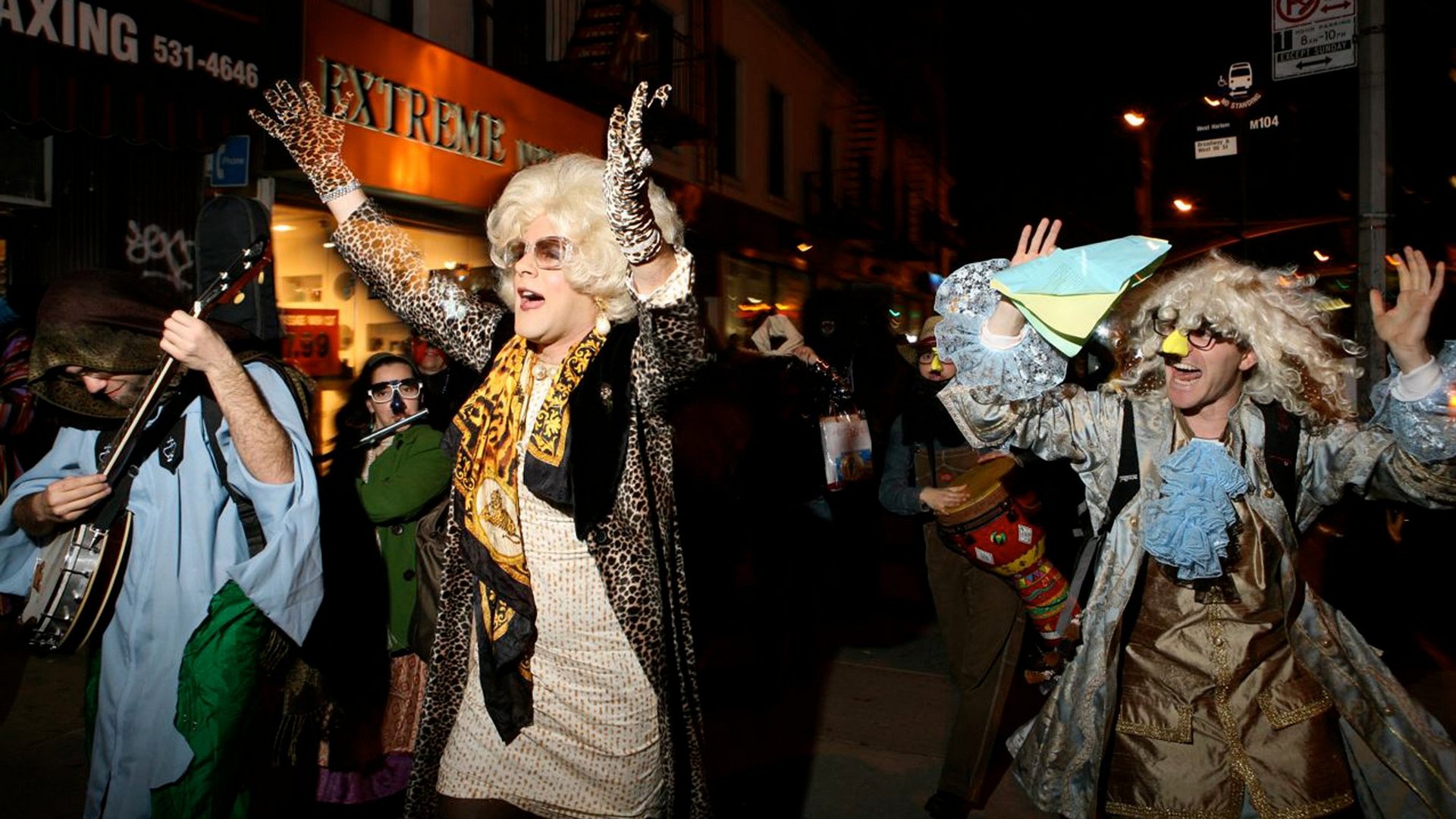

Rabbi Amichai Lau Lavie is the heir to a rabbinic lineage that spans thirty-eight generations. He is also a drag queen and queer father. The protagonist of Sabbath Queen reimagines religious traditions through art and community.
Amichai Lau Lavie: I think we are facing a plague of isolation. In all cultures, we inherited the notion of community. We’re not here just for ourselves. In order to be free, I need to make sure you are free. If my sister is suffering, I'm there to help her and she will help me when it's my time to need help. So community is really about human resilience and kindness first and foremost. I think in the Jewish world, like in many other worlds, that is the secret recipe for our strength: community. That too is not a given. As somebody who grew up in a very tight knit community and family, but found myself on the outside, on the fringe, I realized that I need community for myself. And by building one, I get to have one and others get to have it too.
What comes to me first is a moment in my early 20s when I felt very lost, when I sort of like the R.E.M song, lost my religion. I didn’t feel part of my religion because of my queerness and my politics. It didn’t feel like I had a seat at the table. But I found it in nature. I sat under a tree one day and meditated and closed my eyes. And I felt the presence of what I felt then and feel now is the goddess that mother nature is. Something bigger than me said: You’re not alone. We got you.
Another really important moment was when my oldest daughter who's now 18 was a few weeks old, and she was in the hospital for some procedure. And you’re sitting in front of a baby with tubes and I was just thinking: What the hell. How do I make her feel good?
And I remembered lullabies and the bedtime prayers from my childhood. And I remembered that I can sing those to her. I have that in my hard drive. I have tools at my disposal to handle crises. And so I sang her these lullabies. She survived and she is well.
A lot of people are allergic to the word God, to the concept of a God. Because religion has betrayed so many of us. Christianity, Judaism, Islam and other religions are patriarchal, misogynistic and homophobic. Religion is holding on to a lot of beauty, but around it there are many layers that have kept many of us away from being loved or seen as holy. That is why a lot of people have baggage with organized religion.
And Lab/Shul is a spiritual laboratory. We keep experimenting, so we reserve the right to change our mind. But for now, we chose “God optional” to tell everybody who's an atheist or an agnostic, for whom the word God doesn't work or for whom the concept of a male God feels ridiculous. It's optional. It's a metaphor. It doesn't have to work for everybody.
Everything about religion is about creativity. We eat this, we eat that, we say this, we sing that. That's creative, right? We've created recipes and songs and ways to really lean into the notion of liberation as a companion. But a lot of people dial it in. They're like, it's just copy paste. But really what it's about is an invitation for creativity.
As I'm speaking to you today, we're on the eve of Passover. What are we going to talk about this year? This is a tough year. There's a war going on and we are in the middle of trauma, in the middle of traumatizing others. So you need to be creative to not just read what you inherited. We can say, okay, let’s pause: I just read this poem. I just met this person. I want to ask a question. Now, we are invited to be creative. Our religion isn’t just a recycled museum piece, but an ongoing work of life. During every religious act, whether it's Easter or Christmas, Ramadan or Passover, we are invited to be creative. And the more creative we are, the more we become part of the holiday or the religion.
These are very tough times. As somebody born in Israel, as somebody who's Jewish and loves being Jewish I know that for a lot of people being Jewish and being Israeli is perceived as very problematic. And unfortunately, the political situation is horrible and the current Israeli government is horrible. And what's happening in Israel and in Palestine is horrible. I come from the school of thought of a jewish voice, that isn’t the majority, but it’s not small either, that says: It is never “either or”. It's not about I'm right and you're wrong. It's not about my land or your land. It's about “and”. I can be gay and Jewish. I can be pro Israel and pro Palestinian. I can be advocating for my people's survival and my neighbor's survival. If I don't hold on to both, then I'm back in the binary that has held us back from humanity. And so my message is always going to be” and”, and “both”. How do we meet in the messy middle where we honor our differences? If the film can help show people that there are Jewish voices like mine who are proud and loud and embrace the messy middle of fluidity instead of the binary boundaries of “either or” that's the path forward towards peace, towards acceptance of the other, towards tolerance and towards dignity.
